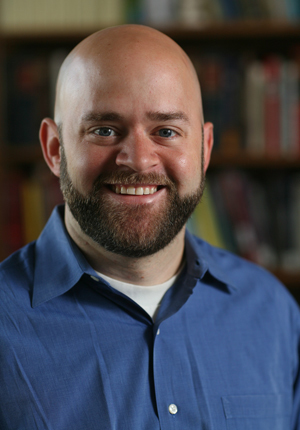
Researchers at Oregon Health and Science University announced yesterday they have, for the first time, succeeded in creating a cloned human embryo, which they destroyed in order to derive embryonic stem cells. The researchers hope that this will advance understanding of developmental biology, and perhaps lead to regenerative therapy for a variety of conditions.
Public debate over the propriety of human cloning remains heated, and University of Notre Dame Bioethicist O. Carter Snead is concerned by this new development.
“It is very sad news to hear they have cloned and destroyed human beings at the embryonic stage of development for purposes of deriving stem cell lines,” says Snead, a professor of law.
The scientists created the cloned embryos by replacing the nucleus of a human egg with that of a skin cell — the same process that has been used to create cloned mammals, such as Dolly the sheep. They then disaggregated (thus destroying) the living human embryos in order to extract embryonic stem cells, which they were able to cultivate into other forms of human tissue.
“The use and destruction of living human beings — at any stage of biological development — for scientific research is a terrible injustice,” Snead says. “Human cloning for biomedical research is a particularly aggravated form of this harm. First, it amounts to an even starker type of instrumentalization than research involving donated embryos originally conceived by IVF, but no longer wanted for purposes of assisted reproduction. In cloning, human beings are created specifically and solely to be used and destroyed for someone else’s research project. Moreover, these embryonic human beings are manufactured according to a precise genetic specification; they are created to be genetically virtually identical to a preexisting individual.
“Cloning research requires a large quantity of human ova, which compels scientists to find women willing to undergo nontrivial health risks to donate, or more likely sell, their eggs. As we have already seen in South Korea, this creates new forms of coercion, especially for the poor and vulnerable to treat their own bodies as an object of commerce. It has been reported that the Oregon researchers paid 10 women for 380 eggs used in this experiment. In a recent worrisome development, California is moving to liberalize its regulation of egg sales.”
According to Snead, continued refinement of cloning for biomedical research will lead inexorably to cloning to produce a live born child.
“This is a prospect that a vast majority of the world community across the political spectrum rightly opposes,” Snead says. “Our elected officials should move swiftly to protect against these harms, and to promote promising research that respects the intrinsic, equal dignity of all living human beings, such as research on adult and induced pluripotent stem cells (for which Shinya Yamanaka won the 2012 Nobel Prize).”
Snead specializes in public bioethics — the governance of science, medicine, and biotechnology in the name of ethical goods. His scholarly works have explored issues relating to abortion, neuroethics, stem cell research and end-of-life decision making. Snead has provided advice on the legal and public policy dimensions of bioethical questions to officials in all three branches of the U.S. government and to officials in intergovernmental bodies, including the United Nations. Prior to joining the law faculty at Notre Dame, he served as general counsel to The President’s Council on Bioethics (a White House advisory committee).
Contact: O. Carter Snead, 574-631-8259, snead.1@nd.edu